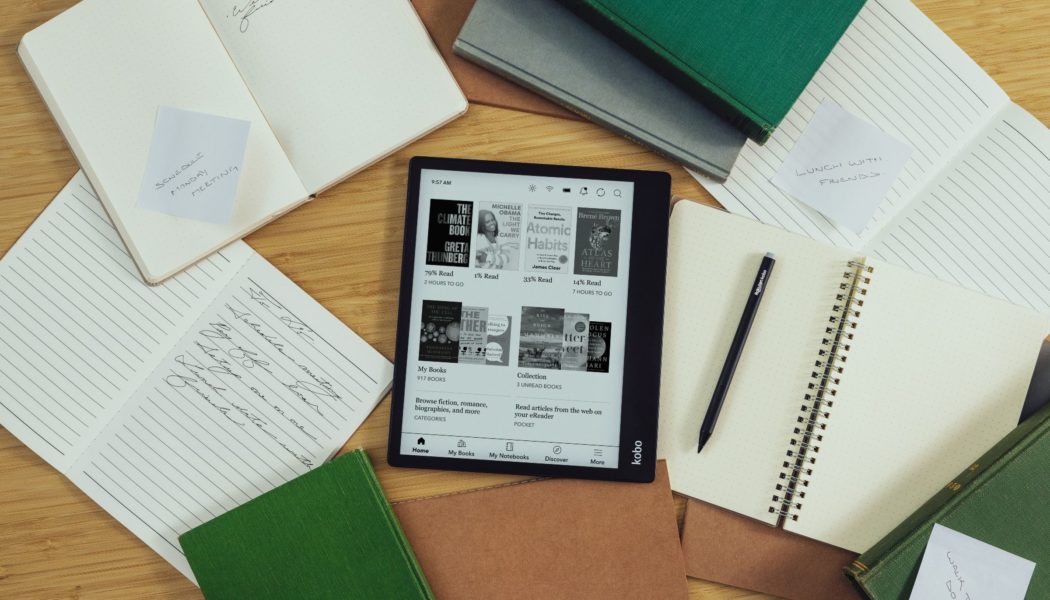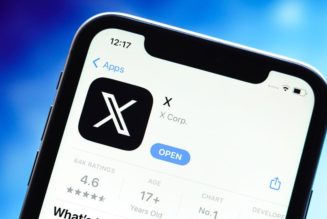Pocket is switching all of its accounts to Firefox logins this summer and that will impact how Kobo’s Pocket integration works.
Share this story

It looks like Kobo readers might not lose Pocket integration after all. Mozilla, the maker of Firefox and current owner of Pocket, originally said in a support document that Kobo’s Pocket integration would stop working entirely after August 15th, 2023, when Pocket will require Firefox accounts to log in. In separate statements to The Verge Mozilla and Kobo now say that existing users of the integration will not be affected, and that Kobo would update their devices to use the new logins.
The original announcement that Kobo’s Pocket integration would stop working was reported earlier this week by Goodereader.com and confirmed by The Verge.
Sarah Vasquez, a senior manager for communications at Mozilla, provided the following statement after this article was originally published:
Kobo is aiming to update the Pocket login on their eReaders to support Firefox accounts. The exact timing is to be determined, however Pocket’s existing Kobo users will not be affected, nor lose access to their accounts.
Note that new Pocket accounts created after August 15th may not have access to the existing Pocket login option, depending on when Kobo support becomes available.
The company also updated its support pages with the above statement.
Rakuten Kobo senior manager for communications Erin Ierullo provided the following statement:
Pocket incorrectly stated in the recent Mozilla Support article that the service won’t work on Kobo eReaders following the migration of Pocket accounts to Firefox. Pocket integration is an important offering that Kobo provides eReader users and we will continue maintaining our support through the Firefox transition. The Mozilla team has updated that article, which now includes the proper information.
Kobo users logged into an existing Pocket account will not be affected. For new Pocket users with accounts created after August 15, an eReader update will be required and Kobo will have a new sign-in flow to support Firefox accounts. Existing users who want to switch to a Firefox account to login must update their eReaders at that time to continue using Pocket.
Currently, Kobo devices “do not support the specific modern web technologies that Firefox accounts require” according to Mozilla, and, therefore, will not be able to use Firefox logins when the change is implemented unless they are updated. Mozilla says it is requiring Firefox logins in Pocket in order to provide security features like two-factor authentication.
Kobo’s Pocket integration works very well — it has automatic two-way syncing; offers a great reading experience, including nice-to-read typefaces and pagination for articles; and supports search and other sorting features. It is, by far, the best way to read web articles on an E Ink device. Though you can send Pocket articles to Amazon’s Kindle devices through some third-party services, those only work one-way and are not as easy to use or as well integrated as Kobo’s Pocket feature.
There are E Ink devices from companies such as Boox that support Android apps, and in theory, Pocket should still be available on them after the Firefox account transition. But those rely on the Pocket Android app, which was designed for phones with color touchscreens and not the slow-refreshing E Ink screens used on ebook readers. The Pocket Android app doesn’t support pagination and requires vertical scrolling to see more of an article, which is still a lousy experience on even the latest E Ink devices. It also doesn’t have as nice fonts or presentation as the Kobo integration.
For those that own a Kobo and are already using the Pocket integration, nothing should change, though it’s certainly possible that account access breaks when Mozilla rolls out its changes later this summer. If you have a Kobo and haven’t yet linked your Pocket account to it, you might want to do that sooner rather than later just to be safe. The updated information about Kobo’s plans to continue support is still more promising than the original support documents that said the functionality would just stop working.
Update, June 29th, 1:02PM ET: Added statement from Mozilla and updated article throughout with the new information provided in the support documents.
Update, June 29th, 4:25PM ET: Added statement from Rakuten Kobo.









